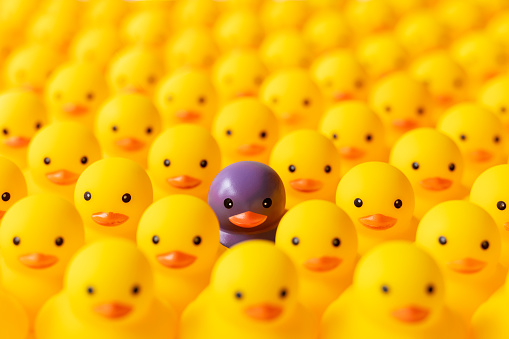To whom it may concern,
As I write this letter, I look back on the (almost) four years I spent in this institute — how I landed in Korea as a first-time international student, how I cried upon receiving an A- in a subject I thought I excelled at, and how I told everyone to read my first published Herald article, among countless other moments. I could go on forever, and as is customary for graduating reporters in the Society division, I was thinking of dedicating my last ever Herald column to reflect on how much I love and hate my time at KAIST. However, I realized that most of my struggles and realizations have already been covered by other “farewell articles” before mine, and that there is little that I could add to the misery catalog. Being a student at one of Korea’s top STEM institutes has taught me to make peace with being a mediocre student, but I was not prepared to accept that even my agonizing journey is not special.
Uniqueness. So much of our life hinges on being unique — on being the only one out of eight billion people. I still remember the jealousy I felt towards the girl in third grade who could draw pretty well because being “the only kid who could draw” was a big part of my identity in kindergarten. As if life passed by in a blink of an eye, I was suddenly in senior year of high school, dealing with college application essays. I crafted essays that, in hindsight, looked like it was trying too hard to be unique. But it was not until the rejection letters came flowing in that I realized just how bland my “stellar” extracurriculars, perfect grades, and essays were. And then, of course, I got into KAIST and learned that there are tons of real geniuses. I am no one but an impostor who became the number one from elementary through high school merely because I was a big fish in a small pool. It is as if at every stage of our life, reality is tearing our unique identities apart one by one.

I’m pretty sure I’m not alone in this matter. You might be dealing with the same crisis. A quick look at Here at KAIST, Reddit, or any online forums would bring us to a plethora of stories eerily close to mine. On a broader level, I’m pretty sure that you are aware of how a lot of online “facts” and clickbaity articles contain phrases like “is the only”, “no other being except”, or other superlatives to grab our attention. In classrooms, a lot of discussions about human behavior begin with a pseudo-philosophical introduction of humans being the only living beings with self-awareness; lectures about Earth begin with a well-known fact that Earth is the only planet with life. In popular culture, stories about the chosen one and latent superpowers are tropes that have been used to death. Think about Harry Potter, Anakin Skywalker, and Thomas Anderson aka Neo — their charm lies in their prophecy of being The Chosen One, the only one in their entire universe who wields a special power. Even fictitious characters are projections of our subconscious desire to be unique.
I used to wonder why my life is so boring; why I am not the special one in anything. When those thoughts strike, I take comfort in a quote I found from a book about writing: “Fiction is life with all its boring parts removed.” If Hogwarts is real, it still takes one full year to finish a grade, and I believe that even in a world as whimsical as the Wizarding World, some days are bound to be boring and some other chosen ones are bound to exist. We only get to see two to three hours of sneak peek in one Harry Potter film; that is why the writers cherry-pick the most unique parts to show us. Even in real life, it might not be completely true that humans and Earth are that unique either. Scientists and entrepreneurs are spending billions of dollars to investigate the existence of self-awareness in other living beings and life in extraterrestrial objects, and their findings seem to suggest that we simply have not been aware of their existence. Thus, on both a personal and collective level, we are never unique.
It is depressing to think that more than 99% of the world’s population won’t even know that we have once lived. Perhaps this is why we are so desperate to make our mark in this big wide world, like an irreplaceable cog in an intricate machinery that without it the whole system ceases to work. But I have come to admit that in most cases, we are replaceable. Most of us will not live to leave a remarkable legacy. However, it does not make our life any less meaningful. If everything is going to end “boringly” anyway, there is even more reason to appreciate it while it lasts. My experience at KAIST, my identity, and even my entire life is far from being unique, but that does not make them any less real or valid. If you are struggling through the same thought, I hope you know that it’s okay to not be perfectly unique — because none of us is.
Warm regards,
C.

